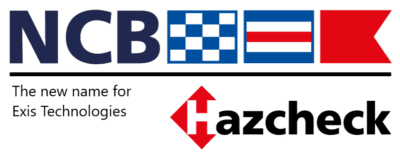TT Talk – Competence reduces the incidence of incidents
Two recent groundings of mega container ships act possibly as gentle reminders that persistent shipping risks face stakeholders. Similarly, risks of cargo management for every size of container ship have not receded – specifically that of ‘adjacency’, the potential for the actions of one shipper, having mis-declared or incorrectly packed cargo in one container, to have an impact on the entire maritime adventure.
As highlighted previously by TT Club, poor packing of cargo transport units (CTU) is responsible for an alarmingly high percentage of incidents through the supply chain, leading to damage, loss, injuries and fatalities. The Club’s own claims experience shows that 6% of incidents involving damage to cargo can be attributed to poor or improper packing and securing. For maritime incidents specifically, the ocean carriers’ Cargo Information Notification System (CINS) has also revealed that packing processes remain the dominant causation at more than 75%.
“65% of incidents involving damage to cargo can be attributed to poor or improper packing and securing”
The IMO/ILO/UNECE Code of Practice for Packing of Cargo Transport Units (CTU Code) seeks to address many of the common issues experienced. The CTU code provides an encyclopaedic good practice guide, and contains advice and information for all stakeholders in the logistics supply chain – from shippers, cargo packers, forwarders and logistics companies through to road, rail and sea carriers, ports and terminals and depots. Applicable to all types of cargo moving in dry freight, reefer and tank containers, road trailers and tankers, swap bodies and railcars, the Code provides parties along the supply chain with information about their responsibilities, including details of how to pack and secure packages and cargo items. It also places a responsibility on the shipper to declare correctly the composition of the cargo, as well as the gross mass of the packed CTU.
Approved during 2014 by the sponsoring UN bodies, the CTU Code stands as non-mandatory international law. But don’t be fooled, this code has litigators’ teeth and will increasingly be used against any stakeholder as a ‘comply or explain’ compendium for sound industry practice.
“strengthened training can reduce incidents”
It is proven that strengthened training can reduce incidents of loss. Conscious of this, TT Club has sponsored Exis Technologies, a leading developer of e-learning courses for the transport industry, to develop two new courses under their existing CTUpack e-learning brand for the safe handling and packing of CTUs.
Introduction to the CTU Code Course
This course, which will be available in early April 2016, provides an introduction and overview to the CTU Code. It highlights how to navigate the key sections of the Code and how it can support training in the packing and securing of cargo into/onto CTUs. The course is aimed at anyone who has an interest in learning more about this Code and how it can be used in their day-to-day role. It also includes a brief overview of the new SOLAS[i] Verified Gross Mass (VGM) regulations and direct links to the text of the CTU Code.
Introduction to Freight Container VGM Module
Closely related to the issue of container packing is the provision of verified container weights. As many will already know, there is a new requirement under the SOLAS Convention requiring shippers to obtain the ‘verified gross mass’ (VGM) of packed containers and communicate it to shipping lines. This will be mandatory from 1 July 2016. A study module on VGM, available in May, will explore this requirement, including the two methods permitted to verify the gross mass, weighing the packed container (Method 1) or weighing all constituent parts and adding that to the tare of the container (Method 2). This module is designed to provide all the information needed to understand why this legal requirement was developed, its objectives and offer practical solutions.
CTUpack e-learning Foundation Course
The course launched in 2014, is an online training tool for those involved in the loading and unloading of containers and other cargo transport units. The aim of this course is to familiarise consolidators and packers with the significant and dangerous implications of bad packing and to provide guidance consistent with current good practice.
The course contains four main modules:
- Cargo module – this module introduces the main types of cargo, physical characteristics and highlights what can go wrong.
- Transport module – this module looks at how cargo is transported, the main types of equipment used, forces and stresses encountered during transport and route considerations.
- Packing module – this module looks at the preparation and inspection of the CTU prior to packing, planning how to pack the CTU, manual and mechanical handling considerations, the packing process, securing materials, basic principles for packing and securing, closing the CTU and CTU security, documenting the shipment and insurance considerations.
- Arrival module – this module looks at considerations when opening the CTU upon arrival, unpacking methods and inventories and removal of securing materials.
Thorough understanding of the risks and consequences related to consigning goods through the international supply chain remains crucial to reducing the incidence of incidents. TT Club commends these e-learning products as a means of protecting life and property, while seeing trade facilitated. More information about the range of CTUpack e-learning courses is available here. TT Club Members enjoy a 15% discount.
[i]International Convention for the Safety of Life at Sea, 1974, as amended







